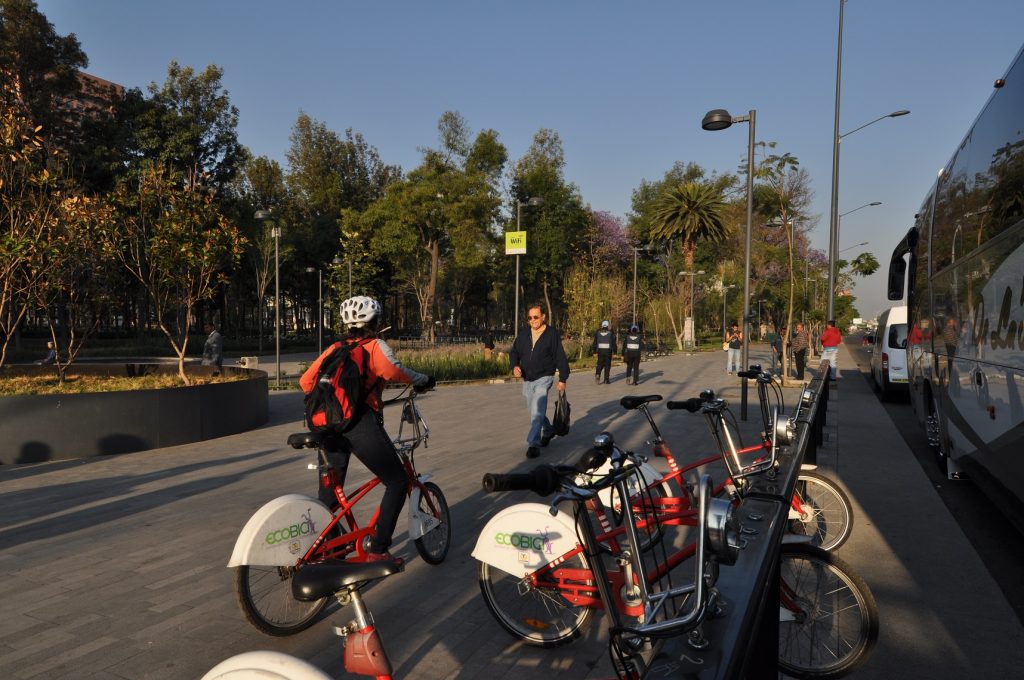The devastating effects of COVID-19 have shown that when it comes to a global pandemic, cities are at the front line. More than half the world’s population – roughly four billion people – live in urban settings. As densely populated environments, cities are the hubs of commerce and mobility, characteristics which can intensify the spread of infectious diseases and make it paramount for them to lead global efforts to prevent, protect and rebuild.
Through this crisis, I’ve seen up close the action of more than 20 cities from my perspective as the Director of Cities Changing Diabetes – an innovative partnership effort to fight diabetes in cities. At the onset of the pandemic, I know many of us working on long-term chronic diseases in cities feared the agenda was about to experience a set-back. But as the issues of health promotion, engaging communities, vulnerability and inequality have shot up the urban agenda, we’ve seen many of the solutions needed in the long-term are finding new traction.
The frontiers of what we previously thought possible have shifted, and many of our past assumptions about the way we have to live in cities have been swept away. How we structure our recovery efforts now will define our way of living for decades to come. City leaders are showing a determination to ensure that as we recover, we recover better: with greater resilience for citizens, societies, and the planet.
Mayor Claudia Lopez in Mexico City is planning for an additional 80 miles of temporary bike infrastructure to alleviate the risks of public transport in her city of more than 21 million people.
These plans help weather the current storm, better prepare for future crises, and create a long-lasting more equitable and sustainable form of transport for citizens, in one of the largest megacities in the world.
Mayor Sadiq Khan in London has also pledged to get the population moving whilst simultaneously reducing the use of public transport which can make social distancing measures impossible. This includes upgrading and increasing the number of cycle lanes, widening pavements and temporarily closing roads to through traffic. These are important examples of how health issues will need to be tackled by policies and investments in other parts of a city’s infrastructure.
We’ve also seen innovative solutions and technologies emerge from the crisis that can help bolster the health of the overall population now, and for the long term. In Houston, Cities Changing Diabetes’ academic lead Dr Stephen Linder, University of Texas Health Science Center, has adapted a tool that was first used to map vulnerable neighbourhoods in Philadelphia, to predict and match the likelihood of severe COVID-19 cases with the capacity of nearby hospitals. This tool helps target resources more efficiently, identifying those hospitals in areas most at risk of being overwhelmed with patients to ensure that the vulnerable amongst us in greatest need can receive treatment.
In the long term, this focus on the most vulnerable – and an examination of the social and cultural factors that lead to illness in the first place – can translate into effective strategies to improve the health of the overall population.
Ensuring a healthier and therefore more productive population is paramount for generating a sustainable economic recovery, and we are inspired by our programme partners who are working to lock in strategies that address climate change in the post-pandemic setting. Through the C40 network, mayors from Bogotá to Barcelona have called for a healthy, equitable and sustainable economic recovery to the COVID-19 pandemic. “No return to business as usual” is a call for a low-carbon, sustainable recovery from the crisis as national governments support cities and investment in cities through economic stimulus packages.
While today we’re confronted with COVID-19, we shouldn’t forget that – over a longer horizon – diseases like diabetes will also have severe human, social and economic costs in cities. That’s why, as we recover from this challenge we can and must adopt the principles that we know work to protect health. Above all that means understanding the social and cultural factors that make people vulnerable to disease, identifying the inequalities that limit our ability to live healthily, and building the trust across the city’s departments and communities that’s needed to think health into the fabric of city life.
Source: cities today




